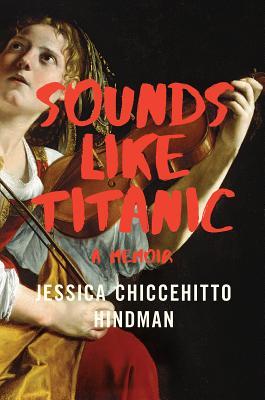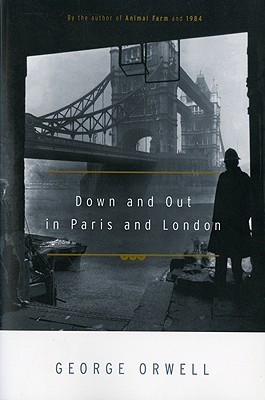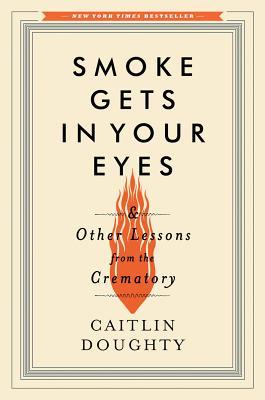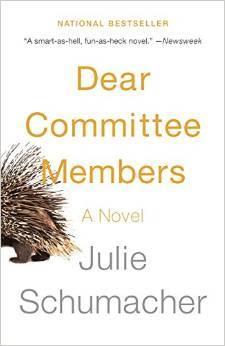Jessica Chiccehitto Hindman's new memoir, Sounds Like Titanic, may be the quirkiest nonfiction book of the spring. It chronicles her time "fake"-playing classical music on tour with an unnamed composer. But maybe it's best to hear it from Hindman herself. Here she tells us about her story and recommends five more books about the act of holding down a job.
Goodreads: Summarize your book for us.
Jessica Chiccehitto Hindman: Sounds Like Titanic is about a young woman from Appalachia (yours truly!) who gets a job with an orchestra in New York City that turns out to be a sham.
When I performed with this orchestra, the microphones in front of me weren’t plugged in and a CD recording of a far-more-talented violinist was blasted toward unsuspecting audiences. We were like the Milli Vanilli of classical music, or as I call us in the book, “Milli Violini.”
The mastermind behind this scheme is a mysterious man, The Composer, who has sold millions of albums and performed with the world’s most prestigious orchestras and on PBS. Who is this guy and why is he doing this scheme and how is he getting away with it? Those are a few questions the book seeks to answer. And yet the story about my becoming a fake violinist and touring around America with The Composer is really just the scaffolding of the book, which I use to launch bigger investigations about class, gender, geography, mental illness, and American culture in the years immediately following 9/11.
If I had to summarize this book in one sentence, I would say that Sounds Like Titanic is an investigation between the real and the fake, and what happens when society can no longer tell the difference.
GR: What did you learn from the process of writing your memoir?
JCH: First and foremost, I learned how challenging it is to write a memoir. I wanted the book to be structurally and thematically complex while adhering to a rigorously truthful firsthand account. I was so devoted to learning how to do this the right way that I got an MFA and a Ph.D. in Creative Nonfiction Writing.
And I did a lot of research into American ideas about classical music. Beginning in the early 1990s, classical music was seen to have almost miraculous qualities; it could cure your cancer and get your kid into Harvard. Of course, none of these claims turned out to be true. I learned a lot about the so-called Mozart Effect (which has since been debunked) and the simultaneous efforts to censor certain types of music, particularly rap.
I also delved into books like Mary Pipher’s Reviving Ophelia, Susan Faludi’s Backlash, and Naomi Wolf’s The Beauty Myth in order to better understand my own adolescence. How had I gone from a happy, well-adjusted 11-year-old girl in 1992 to a suicidal, eating-disordered 13-year-old by 1994? Those books helped me understand the cultural moment in which I came of age, and why learning to play the violin was so important to me as a young woman who wanted to be seen for my talents rather than for what I looked like.
GR: Much of your memoir is about music. What role do you think music plays in people’s lives?
JCH: I love this question—it’s big and complex with no one answer. I’ve developed a theory over the years of watching people respond to music that there are two types of listeners. The first type intellectualizes music—think music critics, music theory professors, tastemakers, people who seek out new listening experiences, people who are into all the interesting new artists, your hip friend who has memorized the liner notes of a super obscure live album from an underground blues viola performance in Norway in 1967. The second type of listener approaches music almost like a mind-altering substance; music induces something akin to a mania or a religious ecstasy. These listeners are seeking a feeling. They don’t care whether the music that brings it on is “good” or “bad” or “cool” or “uncool” or popular or eclectic. These listeners are more susceptible to earworms and less interested in seeking out new music than they are replaying music that has an emotional connection to their past. I have always identified more with the second group.
As I write in the book, a random encounter with Vivaldi’s "Winter" when I was four years old shaped the course of my life—I only heard it once, in a cartoon movie, but it played in my head for nearly two decades until I could finally confirm its origin when I found an old VHS of the cartoon on eBay. And I think most of The Composer’s fans are also in this second group, which is why I empathize with them even as I don’t share their musical tastes.
Hindman Recommends Five Great Books About Life at Work
"While there are many fascinating books about life on the job, I think that literary memoirs about work are underrepresented, especially given the fact that Americans spend so many hours of their lives working. I hope more people will write about their crazy, horrible, no-good, very bad jobs and the toll that such employment takes on both the individual worker and our society as a whole," she says. Here are some of her favorite accounts of life on the job:
"Most Americans know Orwell for his fiction, but his nonfiction is just as thrilling to read. In this true account, he chronicles the working poor of Paris and London with an unsentimental, empathetic eye."
"This is the book I read in college that made me want to become a writer. Ehrenreich translates the realities of the working poor in an engaging writing style that became the required template for subsequent tales of life on the job."
"McMillan Cottom worked as an admissions counselor at for-profit colleges and then went on to become a professor of sociology at several prestigious research universities. As such, she offers unique and valuable insight into life on the job in American higher education while addressing important questions about the ways that gender, race, and class shape the divide between for-profit and nonprofit colleges."
"An investigation into a necessary yet taboo line of work: cremation. A vivid, disturbing odyssey of one woman's descent into America’s hypercapitalist version of the underworld."
"This is the only book on my list that is fiction, but as someone who has worked as a creative writing professor for over a decade, this is the truest account of life in my profession that I’ve ever read. Written entirely as letters of recommendation, as penned by a curmudgeonly creative writing professor named Jason Fitger, this book is hilarious, spot-on-accurate, and surprisingly moving."
Jessica Chiccehitto Hindman's memoir, Sounds Like Titanic, will be available on February 12. Don't forget to add it to your Want to Read shelf. Be sure to also read more of our exclusive author interviews and get more great book recommendations.
posted by Cybil on January, 28
from Goodreads Blog http://bit.ly/2Tmkh3m
via IFTTT









No comments:
Post a Comment